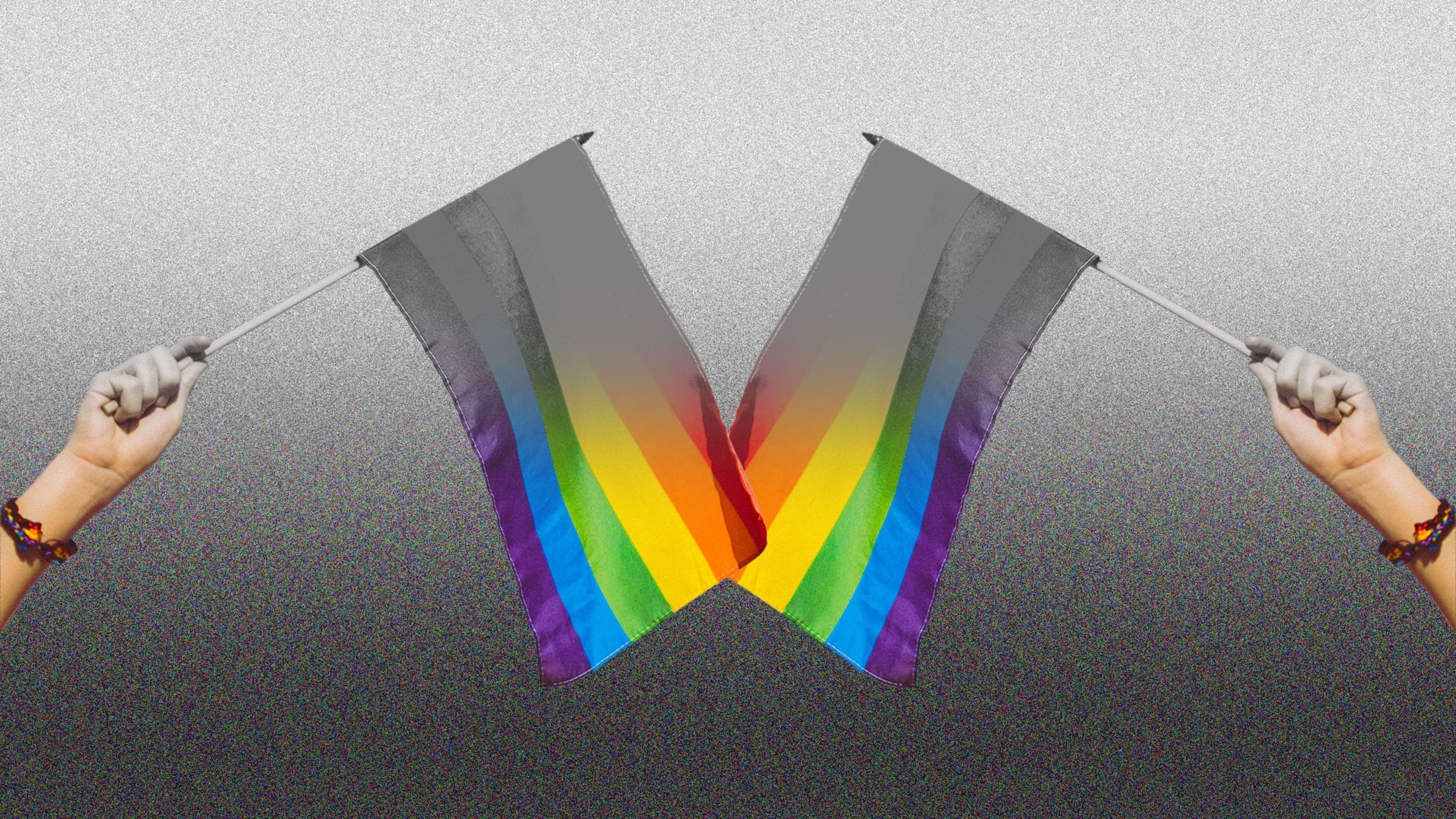Alex Quinto, a middle-school counselor in Pinellas, Florida, has lots of questions about what “Don’t Say Gay” means for his students. Quinto, identifies as LGBTQ, and was recently recognized as an educator of the year by GLSEN, and organization which works to create safe spaces for LGBTQ youth. Quinto is worried about how he will maintain a safe space for his students at school, when their identities are under attack. He, like many educators in Florida, is unclear about what the infamous “Don’t Say Gap” bill means in practice. Will the Gay Straight Alliance be able to keep its name? (Quinto plans to keep the GSA even if it means changing the name and paying for it out of his own pocket). Will this start to impact the Black Student Union or the Japanese Culture club? What about the LGBTQ books he keeps on hand for students since they aren’t at the library? More worryingly, what about student confidentiality?
Still, Quinto feels lucky. He’s got a supportive administration who are trying to figure out how to maintain safe spaces without getting in trouble rather than how to eradicate them. He knows it’s not the same across Florida. “We’re going into a war where we don’t know what the enemy is going to do next and it’s a really struggle to figure out what we can do,” he says.
In March, Florida Governor Ron DeSantis signed the “parental rights in education bill” which requires parents to be notified if there’s a change in a student’s mental, emotional, physical health or well-being, and allows them to opt out of counseling and health services. But the part of the bill that’s drawn the most criticism (and earned the name Don’t Say Gay”) is its limits on instruction about sexual orientation and gender identity from kindergarten through third grade. Parents can sue any school district in violation of the bill. Even before the bill had passed, it had a chilling effect in schools.
Melanie Willingham-Jaggers, is the executive director of Gay, Lesbian & Straight Education Network (GLSEN). She’s been hearing confusion and fear from teachers for months, including a teacher whose principal met them after school to help identify problematic material in their classroom a month before the bill had passed. Since then, the chilling effect has only gotten worse, including books being removed from shelves and a move to censor images of student protests in yearbooks. The reach of Flordia’s bill are stretching beyond Florida all the way to traditionally blue states. For example, last month in Massachusetts, two sets of parents sued middle school teachers and administrators for failing to disclose their children’s desire to use new names and pronouns. “This is a key moment in history that’s going to be a turning point and fighting for LGBTQ rights is the heart of it,” Willingham-Jaggers says.
Equality Florida, an LGBTQ advocacy group, is taking a three-pronged approach to fighting the legislation. First, in partnership with the National Center for Lesbian Rights and impacted Florida families to file a lawsuit against the legislation. “Don’t Say Gay is unconstitutional and a violation of Title IX,” says Joe Saunders, senior political director and a former member of the Florida House of Representatives.
JoeEnter quote”Nothing in these laws requires the kind of censorship we’re seeing.””
Second, Equality Florida is focused on the midterm elections. Saunders sees “Don’t Say Gay” as part of DeSantis’s bid for presidency. In a recent poll, DeSantis came out as the first choice for Republican voters for a presidential primary, with 44% compared to Trump at 41%. Saunders points out that DeSantis only won Florida’s governorship by 30,000 votes or 0.5%. He notes that a few years ago Florida was leading the country in terms of bipartisan support for LGBTQ legislation. In 2018, 18 Republicans backed the Competitive Work Act, which looked to protect the LGBTQ community from discrimination, and in 2020 59% of Republican voters said they supported it. “The legislature is being held hostage by Trump style politics,” he says.
Third, Equality Florida is doubling down on its safe and healthy schools program. The program was founded in the wake of a 2016 shooting, where an armed man killed 49 people at a gay night club in Orlando. Equality Florida realized that one of the best ways to combat homophobia is through education. As such Equality Florida works with school districts to build safe environments. He notes that the bill has opened the door to making it easier for conservative parents to complain and start unfounded lawsuits.
At the moment, Saunders highlights the importance of organizing and showing up for school board meetings to push back against parents who are raising complaints against school districts trying to provide safe spaces for LBGTQ youth. For example, he notes, there’s no need for schools to roll back GSAs. Under the Equal Access Act, schools that offer extra curricular activities cannot deny students the right to form a club based on their religious, political, philosophical point of view. It also means providing information to schools on how to avoid lawsuits while still protecting LGBTQ youth. “Nothing in these laws requires the kind of censorship we’re seeing,” he says. “We have to remind people to center the needs of LGBTQ families.”
For people who are outside of Florida, Saunders warns that similar measures are likely to be replicated elsewhere. “Florida politics are national politics and national politics are Florida politics,” he says. He urges people outside of Florida to monitor what is happening to LGBTQ rights and to fight back if there are signs they are being eroded. He points out donations to LGBTQ organizations that support youth are helpful. “This political strategy was not born in Florida….We need to create networks of safety and care.”
Recognize your brand’s excellence by applying to this year’s Brands That Matter Awards before the early-rate deadline, May 3.
